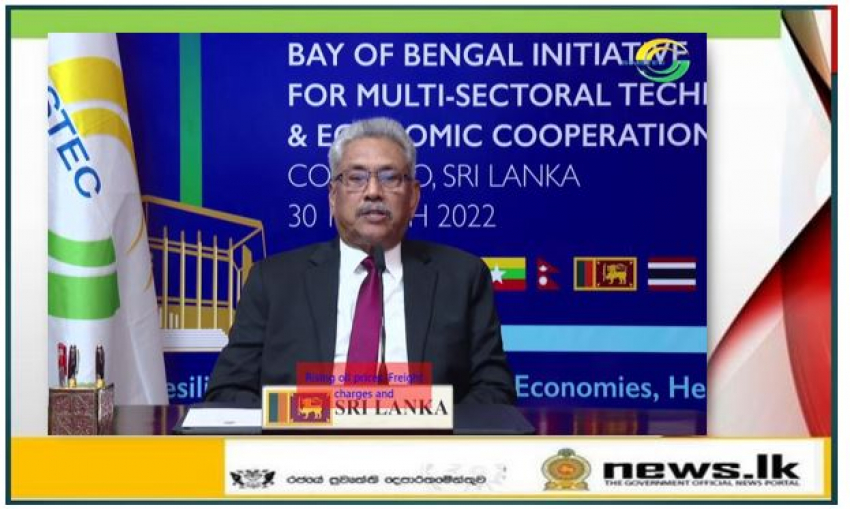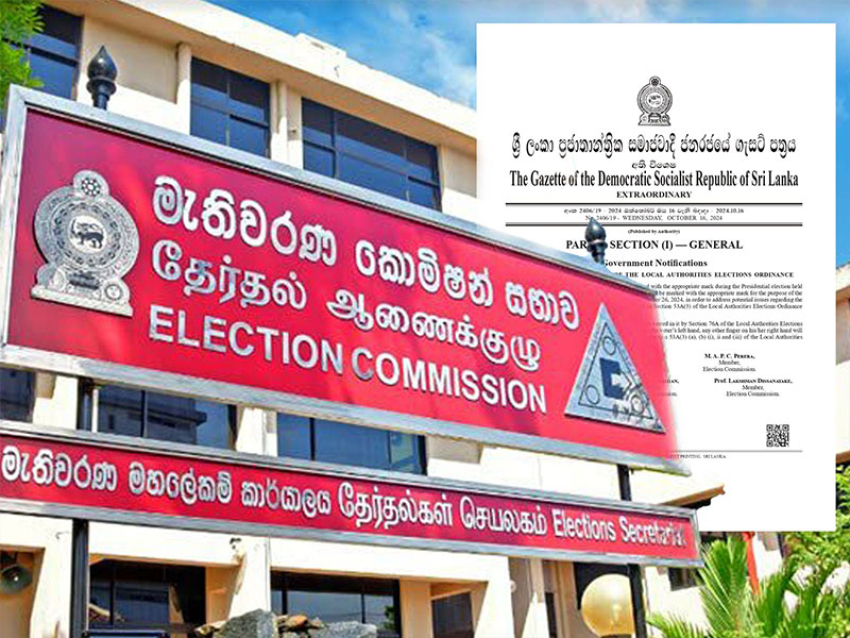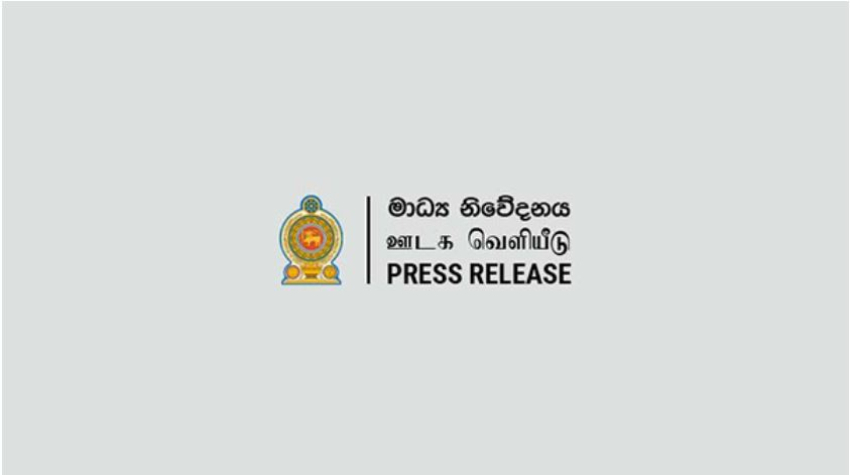The Summit was attended virtually by the Prime Minister of Bangladesh Sheikh Hasina, Prime Minister of Bhutan Dr. Lotay Tshering, the Prime Minister of India Shri Narendra Modi, the Prime Minister of Nepal Sher Bahadur Deuba and the Prime Minister of Thailand General Prayut Chan-o-cha (Rtd.). The Foreign Minister of Myanmar Wunna Maung Lwin representing the government of Myanmar also joined the Summit virtually.
Opening the Summit, the President of Sri Lanka Gotabaya Rajapaksa stated that since its founding in 1997, BIMSTEC has grown into an important platform for countries in this region to support each other by sharing their experiences, strengths and expertise. He stated that this is especially important given that the region’s geo-strategic importance, economic strength and the size of its populace, which accounts for over one fifth of the world’s population. He further stated that enhanced cooperation between member states will be necessary not only for economic recovery, but also for greater economic prosperity, better public health, and improved regional resilience in the long term. Alluding to the theme of the Summit, 'BIMSTEC: Towards a Resilient Region, Prosperous Economies, Healthy Peoples,' the President stated that these aspirations are well reflected in the theme chosen for this Summit and that through collective actions of the leaders of the region, BIMSTEC will gear towards meaningful intra-regional cooperation.
The Summit, taking a significant step towards consolidating the grouping, adopted the BIMSTEC Charter today in Colombo. On this occasion, President Rajapaksa observed that the signing of the BIMSTEC Charter would be a significant step towards increasing the organisation’s role, not just within the region, but also as a driving force from Asia in global affairs.
The President of Sri Lanka highlighted the importance of trade and investments within the BIMSTEC region given its strategic location at the centre of the Indian Ocean and also highlighted that the resources in the Bay of Bengal should be preserved and managed equally. He called for collectively establishing mechanisms to prevent unregulated, unreported and illegal fishing practices as well as overfishing, which threatens livelihoods in coastal communities.
All the seven leaders at the Summit emphasised the need to accelerate BIMSTEC’s agenda on trade and investment and the need to ensure that private sector and start-ups of the BIMSTEC countries work closer. Adopting the BIMSTEC Master Plan for Transport Connectivity, the leaders reiterated the implementation of projects on maritime, transport cooperation and road connectivity.
The leaders also witnessed the signing ceremony of three legal instruments during the BIMSTEC Summit. Representing Sri Lanka, Minister of Justice Ali Sabry signed the BIMSTEC Convention on Mutual Legal Assistance on Criminal Matter, while the Memorandum of Understanding on Mutual Cooperation between Diplomatic Academies/Training Institutions of BIMSTEC Member States was signed by the Minister of Foreign Affairs Prof. G.L. Peiris. Memorandum of Association on the Establishment of Technology Transfer Facility in Colombo was signed by Secretary to the State Ministry of Skills Development, Vocational Education, Research and Innovation Deepa Liyanage.
Concluding the Summit, President Rajapaksa appreciated the support extended to Sri Lanka during the country's tenure as the Chair. Assuring Sri Lanka’s support and commitment to the organisation, he handed over the Chairmanship to the Prime Minister of Thailand, the next Chair of BIMSTEC.
Ministry of Foreign Affairs
Colombo



















